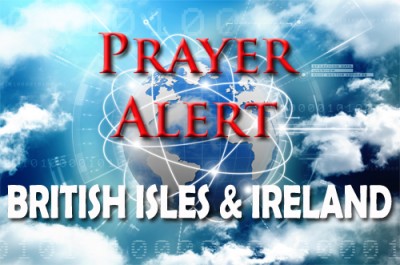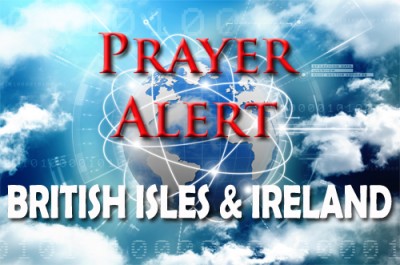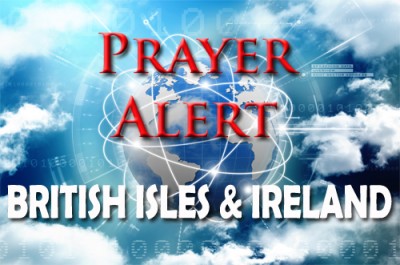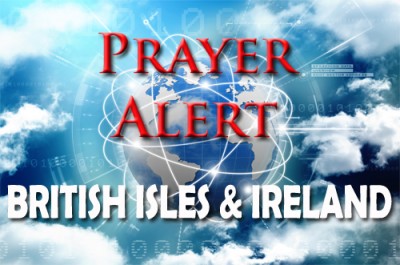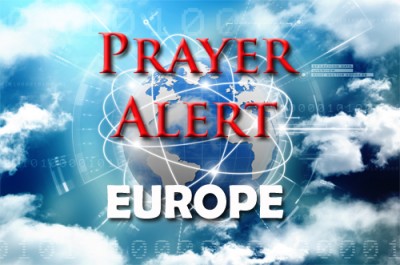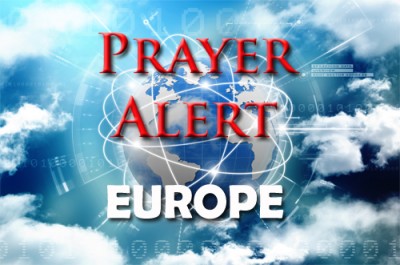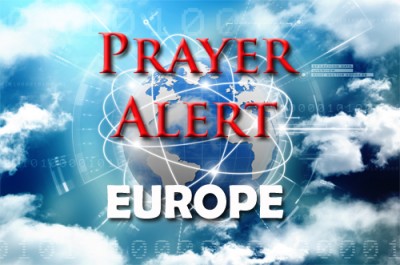Prince Charles urges consumers to buy British
13 Nov 2015The Prince of Wales has urged people to buy British food whenever they can to support family farms and save the countryside. His appeal comes amid growing fears over the economic future of Kintyre as the area's traditional dairy farming industry struggles to stay afloat. The heir to the throne called on the public to harness their consumer power by shopping for home-grown produce instead of imported food. He highlighted the pressure facing the country's family farms, including falling commodity prices and rising input costs, and warned that some city-dwellers may be overlooking the crucial part that farmers play in the UK. In August this year the president of the National Farmers Union said that farmers struggling to cope with falling prices for milk, lamb, beef and cereals are being driven to suicide. See also: http://www.chroniclelive.co.uk/business/farming/north-east-farmers-despairing-low-9821650
Storm Abigail: damage and disruption
13 Nov 2015Storm Abigail, the first storm to be officially named by the Met Office, hit the Western Isles, parts of Argyll and the northwest Highlands and Orkney yesterday (Thursday). Gusts of up to 84 mph and waves up to forty feet high were recorded, with lightning strikes and heavy rain. All schools in the Western Isles and Shetland will be closed today. Two thousand customers in Lewis and Harris lost their power supply, though most have been reconnected. A ferry travelling from Skye to Raasay was prevented from docking for three hours due to stormy conditions, and ferry services today have been cancelled or disrupted.
Asif Khan, a teacher at Oldknow Academy (implicated in the Trojan Horse scandal), allegedly led anti-Christian chants of ‘We don’t believe in Christmas, do we?’ ‘and 'Jesus wasn't born in Bethlehem, was he?' at assemblies. He is also accused of talking to pupils about 'hellfire' and 'prostitutes'. Some teachers, disgusted by Khan’s actions, walked out of school assemblies. A tribunal hearing into his behaviour is listed to run until 18 November. Khan and former deputy head Jahangir Akbar stand accused of unacceptable professional behaviour and / or conduct that may bring the profession into disrepute. Khan denies the claims. Bhupinder Kondal was head teacher there for twelve years before she left in January last year, claiming a group of teachers were trying to impose a strict Muslim ethos. Lessons were segregated, with the girls sitting at the back of the room, and pupils could not sing, use musical instruments or draw trees or eyes.
HMP Littlehey is a ‘Category C’ prison (men there cannot be trusted in open conditions but are unlikely to try to escape) and a Young Offender Institute. Chapel attendance is entirely voluntary. The Revd Barry Trayhorn, an ordained Pentecostal minister, has worked as a prison gardener since 2011, and has helped with prison chapel services for the past three years at the invitation of the chaplain. Revd Barry was leading worship in the prison chapel in May last year, and his subject was the glorious forgiveness of God for those who repent. He quoted 1Cor.6:9-11. Four days later a complaint was made. Barry was immediately suspended from helping at the prison. He was told that his comments during the service were ‘homophobic’ and breached national prison policy. Last November he felt compelled to resign as gardener. A hearing of Mr Trayhorn’s case began last week at Bedford Employment Tribunal: the outcome is not yet known. See also: http://www.christianconcern.com/our-concerns/freedom-of-speech/christian-prison-worker-forced-to-resign-after-quoting-bible-in-chape
It is alleged that properties in Rome owned by the Vatican are being run as saunas and massage parlours, sometimes used by Catholic priests, according to leaks in the Italian press. The reports also allege that church-owned buildings are being let at low rents to powerful friends and allies. The Congregation for the Propagation of the Faith is cited as owning hundreds of high-value properties in central Rome, worth hundreds of millions of euros. Two years ago the Vatican bought a £16m stake in a Rome apartment block which housed Europe's biggest gay sauna, according to the Independent. There were many reports of priests using the sauna with the website promoting special ‘bear nights’ that included a video of a man stripping off to change into clerical vestments. Another report said that Vatican-owned properties in Rome are operating as places where priests pay for sex. See also: http://www.independent.co.uk/news/world/europe/vatileaks-scandal-vatican-properties-used-as-brothels-and-massage-parlours-where-priests-pay-for-sex-a6729251.html
Catalonia’s regional assembly voted on Monday in favour of a resolution to split from Spain, energising a drive towards independence and deepening a standoff with central government in Madrid. The declaration, which pro-independence parties in the northeastern region hope will lead to it splitting from Spain altogether within eighteen months, was backed by a majority in the regional parliament. The fraught debate over Catalan secession has railroaded campaigning for December's national elections away from the country’s lopsided emergence from an economic crisis. Parties favouring independence from Spain won a majority of seats in the Catalan assembly in September. But the Spanish constitution does not allow any region to break away, and the centre-right government of Prime Minister Mariano Rajoy has repeatedly dismissed the Catalan campaign out of hand. The Catalan parliament wants a democratic process of massive, sustained and peaceful disconnection from the Spanish state.
Russia: athletics scandal
13 Nov 2015The World Anti-Doping Agency said the London 2012 Olympics were ‘sabotaged’ by inaction by the world athletics governing body and the Russian federation who turned a blind eye towards Russian athletes with suspicious doping profiles. The IAAF president, Sebastian Coe, is seeking approval from IAAF council members to consider sanctions of provisional and full suspension and removal from future IAAF events by the Russian Athletics Federation. Interpol is now co-ordinating a global investigation into widespread doping in track and field after the former WADA president spent eleven months investigating systemic cheating and cover-up within Russian athletics and the sport’s governing body. He has recommended that five middle-distance runners and five coaches be given lifetime doping bans. The Russian government is accused of complicity in widespread doping and the cover-ups exposed in the 323-page report. On Tuesday, the head of the Russian Anti-Doping Agency acknowledged there is a problem but insisted his country is moving forward to address it.
Gospel advances amid war against IS in Iraq
13 Nov 2015The coalition units in Iraq during October stepped up military strikes in Ramadi in the west and Baiji in the north. At the same time, Christian workers doing spiritual battle in northern Iraq could barely keep up with area residents' desire to learn about Christ and the Bible. People in northern Iraq's Muslim autonomous region of Kurdistan have long been more open to Christianity than other Iraqis, but they have been especially keen since IS took over parts of the region. ‘They're just sick of Islam,’ said the director of a ministry based in Kurdistan. ‘People are very hungry to know about Christ, especially when they hear about miracles, healing, mercy and love.’ He has heard numerous testimonies every day; churches have emerged and people watch satellite television broadcasts of others telling how they came to put their trust in Christ. It’s an ‘awakening’ among Muslims in northern Iraq.
